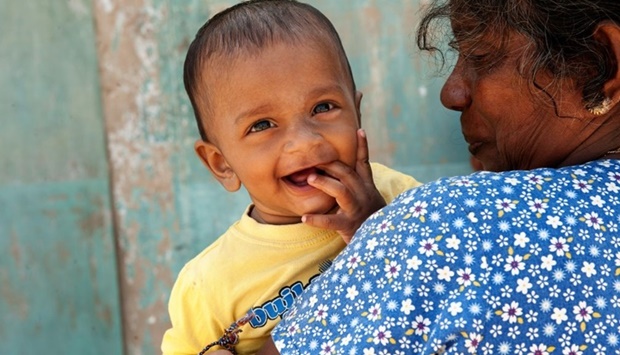Four out of five people have started skipping meals as they cannot afford high prices, the UN has said, warning of a looming "dire humanitarian crisis" with millions in need of aid.
The World Food Programme (WFP) of the UN said it began distributing food vouchers to about 2,000 pregnant women in Colombo's "underserved" areas as part of "life-saving assistance".
Anthea Webb, WFP deputy regional director for Asia and the Pacific, said poor people in the nation of 22 million were finding it harder to afford basics like food.
"When they skip meals they're putting their and their children's health at risk," she said.
The WFP said the distribution of cash vouchers with a value of 15,000 rupees ($40) was part of the UN's efforts to help three million Sri Lankans badly hit by soaring prices.
The world body is trying to raise $60 million for the food relief effort between June and December.
The WFP said it also wants to help a million children have access to at least one meal at school.
They also want to provide "nutritionally fortified food" to another million mothers and children.
In addition, food rations by way of food, cash or vouchers will be given to another million people, the WFP said.
The South Asian island nation has been experiencing shortages of food, fuel, medicine and other essential goods, in a crisis sparked by dwindling foreign currency reserves and government mismanagement.
With fuel shortages worsening, the government declared an additional holiday and ordered all schools to close on Friday to conserve petrol and diesel.
Sri Lanka defaulted on its $51 billion foreign debt in April, and is in talks with the International Monetary Fund for a bailout.
Months of protests, which turned deadly in May with at least nine people killed, have called on President Gotabaya Rajapaksa to resign.

